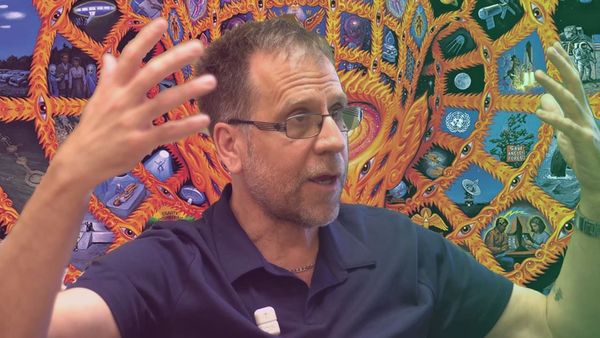Steve Taylor • • 4 min read
How to Suffer Successfully: Post-Traumatic Growth & Nietzschean Resilience

Turmoil and trauma only seem to be seen as destructive and negative. But in the long term, these negative emotions may be balanced—or even transcended—by powerful positive effects. This is the heart of post traumatic growth.
Negativity is something you’ve experienced, or at least been aware of in people close to you. For example, you may know a soldier who has returned from combat and suffers from post-traumatic stress disorder; a woman who has recovered from an episode of cancer but who can’t sleep at night and feels a constant anxiety that the disease will return; a person who’s been through a painful divorce and feels intense hatred and bitterness for her ex-spouse; or a person who feels depressed after becoming disabled through an accident. Other long-term negative effects may be dissociation, aggression, self-hatred, and even dissociative personality disorder (or multiple personality).
Post Traumatic Growth
In recent years, psychologists have become aware of the phenomenon known as ‘post-traumatic growth.’ This term was coined by the psychologists Richard Tedeschi and Lawrence Calhoun, who interviewed many people who had suffered traumatic life events such as bereavement, serious illness (such as cancer), house fires, violence, and becoming refugees. They found that for many of these people, dealing with trauma was a powerful spur for personal development. These people didn’t just learn how to cope with or adjust to their negative experiences; they actually gained some significant benefits from them. In Tedeschi and Calhoun’s terms, they experienced ‘positive life changes.’ They gained a new inner strength and discovered skills and abilities they never knew they possessed. They became more confident and appreciative of life, particularly of the ‘small things’ that they used to take for granted. They became more compassionate towards those who suffer and more comfortable with intimacy, so that they had deeper and more satisfying relationships. It was also common that they become more philosophical and spiritual in their outlook. In Tedeschi and Caohoun’s words, these peoples’ suffering led them to a ‘deeper level of awareness.’
Psychologist Judith Neal studied 40 people who went through ‘post-traumatic growth’ after life events such as serious illness, divorce or the loss of a job, as well as near-death experiences. Initially, most of them experienced a ‘dark night of the soul’, where their previous values were thrown into question and life ceased to have any meaning. After this, they went through a phase of spiritual searching, trying to make sense of what had happened to them and find new values. Finally, once they had found new spiritual principles to live by, they entered a phase of ‘spiritual integration’, when they applied these new principles. Here they found new meaning and purpose in life together with a gratitude for being alive, and even for having been through so much turmoil. (I discuss many other striking examples of ‘growth through suffering’ in my new book Out of the Darkness: From Turmoil to Transformation In some ways, it seems, suffering can deepen us.
Whatever Doesn’t Kill You…

The German philosopher Friedrich Nietzsche was certainly no stranger to suffering. For most of his life, he suffered from excruciating migraines which left him incapacitated for days and terrible stomach pains. He was forced to retire from his professorship at university at the age of 35 due to his ill-health, and spend the rest of his life in isolation. He never found a wife or girlfriend, was ostracized by his intellectual peers—because of his unconventional ideas—and had very few friends. He was so unsuccessful as an author that he had to pay for his books to be published, and even then, many of them were pulped by the printer. Eventually his writings did begin to filter through to appreciative readers, but by then he was showing signs of mental instability. At the age of 45, he had a complete mental breakdown and spent the last ten years of his life in a catatonic state, living with his mother.
Read this: Is Regret Inevitable? A Haunting Comic with Ideas from Nietzsche
However, Nietszche had remarkable powers of resilience, and always thought that his suffering was beneficial to him. He saw his suffering as ‘the ultimate emancipator of spirit’ which was essential for his philosophy, since it ‘forces us philosophers to descend into our nethermost depths…I doubt whether such suffering improves a man; but I know that it makes him deeper.’
Nietzsche’s experience was that when a person emerges from episodes of illness, isolation or humiliation, he is ‘as though born again, he has a new skin,’ with a ‘finer taste for joyfulness.’ In The Prophet, Kahlil Gibran makes a similar point when he writes that, ‘The deeper that sorrow carves into your being, the more joy you can contain.’
This doesn’t mean that we should welcome suffering, or purposely seek it out. But when it does appear in our lives, we should be aware that, beneath its negative surface, there is an opportunity for growth and deepening.
To learn more about how Nietzsche’s philosophy can help you conquer your existence, read this article next.
To learn how to deal with slights, insults, and negativity, this article will show you the six best tactics.
Steve Taylor is the author of Out of the Darkness: From Turmoil to Transformation. His website is stevenmtaylor.com










